Related Research Articles
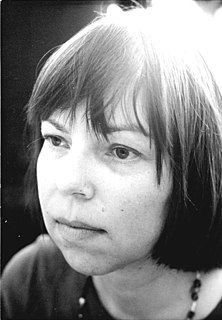
Sarah Kirsch was a German poet.

Helmina von Chézy, née Wilhelmine Christiane von Klencke, was a German journalist, poet and playwright. She is known for writing the libretto for Carl Maria von Weber's opera Euryanthe (1823) and the play Rosamunde, for which Franz Schubert composed incidental music.

Eva Strittmatter was a German writer of poetry, prose, and children's literature.

Lisa Wenger was a Swiss painter and author of children's books. During the 1930s she was one of the best known and most widely read authors in the country.

Ursula Krechel is a German writer.

Ottilie Wildermuth was a German writer, particularly notable for her children's books.
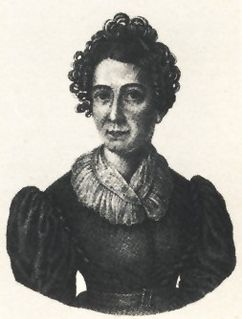
Amalie Schoppe was a German author. She was also known by her pseudonyms Adalbert von Schonen, Amalia and Marie. She is most notable as the author of books for children and young people, with an oeuvre totaling 200 volumes. The Amalie-Schoppe-Weg in the Hamburg-Barmbek-Nord district of Hamburg and the Amalie-Schoppe-Straße in Burg auf Fehmarn are named after her.
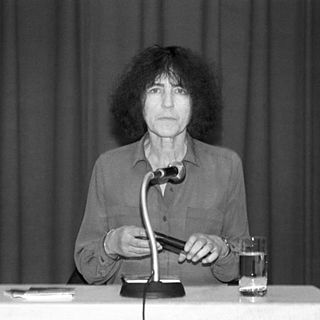
Gabriele Wohmann was a German novelist, and short story writer.

Angelika Schrobsdorff was a German writer.
Carola Stern was the name under which Erika Assmus reinvented herself as a serious journalist and (subsequently) author and politically committed television presenter, after she was obliged to relocate at short notice from East Germany to West Germany in 1951.
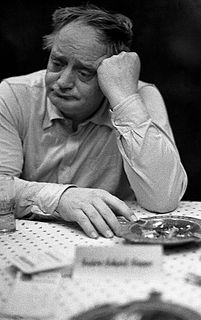
Robert Wolfgang Schnell was a German writer.

Sibel Arslan is a Swiss lawyer and politician of the party BastA!.

Christine Haidegger was an Austrian poet and writer whose memoir Zum Fenster hinaus was translated into English as Mama Dear. She was influential in the Salzburg literary scene.
Günter Herburger was a German writer. He was initially counted among the "New Realists" funded by Dieter Wellershoff, became the author of socialist, imaginative utopian worlds since the 1970s and took an outsider position in German-language contemporary literature. He was a writer of poems, children's books, radio plays and a member of the PEN Center Germany.
Gertrud Fussenegger was an Austrian writer and a prolific author, especially of historical novels. Many commentators felt that her reputation never entirely escaped from the shadow cast by her enthusiasm, as a young woman, for National Socialism.

Elke Erb is a German author-poet based in Berlin. She has also worked as a literary editor and translator.
Milena Moser is a Swiss writer. Her first language is Swiss German. She has emigrated to the United States twice, in 1998 and again in 2015, but German remains the language in which she writes, and in which by 2018 more than twenty of her novels had been published.
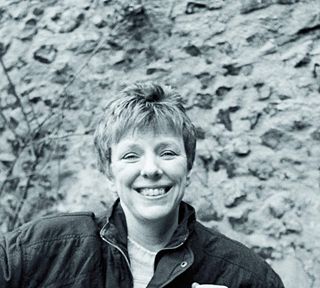
Eva-Ruth Weissweiler is a German writer, musicologist and non fiction writer.
Gertrud Isolani was a widely read journalist-commentator in Germany during the years of the so-called "Weimar" Republic. In 1933 her writing was banned. Her father having died in 1932, and already conscious of the rising tide of Antisemitism which had helped the populists to power, she left Germany, and settled in Paris. From here she continued to write for German-language exile newspaper, Pariser Tageblatt and for the French and Swiss press. In connection with her race and her record as a liberal-leaning journalist during the 1920s, she lived under conditions of intensifying difficulty in France after 1940, but survived. At the end of 1942, after several failed attempts, she succeeded in transferring to Switzerland. She lived out her final 45 years near Basel. After 1945 she resumed her work as a journalist and author, but never again achieved the level of success she had enjoyed in Germany before 1933.
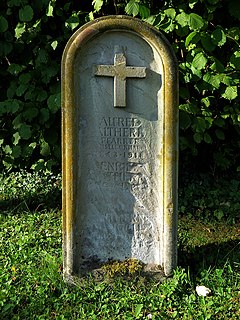
Alfred Altherr was a Swiss Protestant clergyman and writer from the canton of Appenzell Ausserrhoden.
References
- 1 2 3 4 5 Gilbert Alter-Gilbert. "Lions of Literature: Adelheid Duvanel". 50 Watts Books, Philadelphia, PA. Retrieved 31 July 2021.
- 1 2 Caspar Battegay (17 May 2021). "Jede Erzählung ein Drogentrip". Endlich neu zu entdecken: Die große Basler Schriftstellerin Adelheid Duvanel (review). Die Zeit (online). Retrieved 31 July 2021.
- 1 2 3 4 5 Isabel Koellreuter. "Adelheid Duvanel-Feigenwinter". Personenlexikon des Kantons Basel-Landschaft. Basel-Landschaft. Retrieved 31 July 2021.
- 1 2 3 4 5 6 7 Felix Feigenwinter. "Meine Schwester Adelheid". Persönliche Erinnerungen an meine Schwester Adelheid Duvanel-Feigenwinter (1936-1996). Retrieved 2 August 2021.
- ↑ Manuela Nipp, "Georg Feigenwinter", Personenlexikon des Kantons Basel-Landschaft, Basel-Landschaft, retrieved 31 July 2021
- ↑ Felix Feigenwinter (1974). "Wege zur Überfremdung". Meine Reise ins letzte Jahrhundert .... Zuwanderung. Retrieved 31 July 2021.
- 1 2 3 4 Hansruedi Kugler (20 May 2021). "Adelheid Duvanel war das grösste Schweizer Literaturtalent mit dem schwersten Leben". Sie war eine Meisterin der Kurzprosa. Ihre Texte sind auch 25 Jahre nach ihrem Tod eine Wucht: Ein neuer Band versammelt: sämtliche Erzählungen der 1996 verstorbenen Adelheid Duvanel. CH Regionalmedien AG (Aargauer Zeitung), Aarau. Retrieved 1 August 2021.
- ↑ "Wände dünn wie Haut: Adelheid Duvanel in Gemälden und Zeichnungen". Wände schützen das Haus als Lebens- und als Zufluchtsort, dünn wie eine Haut sind sie Körper, welche die Seele umgeben. Gewaltig und höchst sensibel ist die Sprache der Basler Schriftstellerin Adelheid Duvanel (1936-2006). Museum im Lagerhaus (Stiftung für schweizerische Naive Kunst und Art Brut), St. Gallen. August 2009. Retrieved 1 August 2021.
- 1 2 3 Martina Kuoni (21 May 2016). "Wenn der Alltag zum Ungeheuer wird". Die Basler Schriftstellerin Adelheid Duvanel wäre heuer 80 Jahre alt. Die GGG Bibliothek erinnert an sie mit einer Buchbetrachtung. St. Galler Tagblatt . Retrieved 1 August 2021.
- 1 2 "Leben heisst: Zugrunde gehen". Adelheid Duvanels Leben war ein Schmerzensweg. 1936 in eine gutbürgerliche Familie in Pratteln geboren, wird schon früh ihre Doppelbegabung bemerkt. Ausbildungen in der Werbegrafik und als Textilzeichnerin führt sie beide nicht zu Ende. St. Galler Tagblatt. 24 September 2009. Retrieved 1 August 2021.
- ↑ Isabelle Rüf (9 March 2018). "Adelheid Duvanel, un archipel à découvrir". Les petites proses de la Bâloise dansent avec élégance sur l’abîme. Le Temps de Genève . Retrieved 1 August 2021.
- 1 2 Peter Hamm (29 July 2004). "Der Schlaf schlich herbei…". Adelheid Duvanels Erzählungen besitzen eine herzzerreißende Zauberkraft. Die Zeit (online). Retrieved 2 August 2021.
- 1 2 "Adelheid Duvanel .... Lebensdaten". Limmat Verlag, Zürich. Retrieved 2 August 2021.
- ↑ "Duvanel, Adelheid". Angaben zur Person. Universitätsbibliothek Basel . Retrieved 2 August 2021.